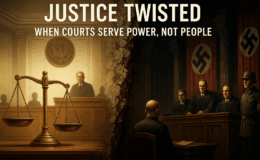In the realm of law, few cases capture public attention as sharply as those involving sex offender registration. Framed often in black-and-white terms, the complexities behind these cases reveal a landscape shaped by both legal precedent and the imperative of public safety. Such is the case of John Feller, a registered sex offender who sought to modify his lifetime registration requirement in Iowa. This situation not only speaks volumes about the legal standards applied in such cases but also highlights the balance courts must strike between individual rights and community safety.
This article delves deep into the nuances of Feller’s case as ruled by the Iowa Supreme Court, exploring its implications for sex offender registration laws and procedures. Readers will learn about the key factors that contributed to the Supreme Court’s decision, the precedent it sets in terms of modifying registration requirements, and the complex balance between rehabilitation and public safety.
Background: The Case of John Feller
In April 2011, John Feller faced serious charges for his actions against a minor, leading to a conviction for lascivious acts with a child. The Iowa District Court sentenced him to concurrent terms of incarceration and mandated that he register as a sex offender under Iowa law. Initially subjected to a 10-year registration, Feller’s situation changed dramatically due to procedural nuances that resulted in a lifetime registration.
Upon his release in 2014, Feller sought to confirm his registration requirement, only to discover that he was now classified as a lifetime registrant due to his prior convictions. This situation, as expressed by Feller himself, seemed unjust, especially in light of nearly a decade of rehabilitation and compliance with the law.
The Path to Modification
Frustrated by this designation, Feller applied for a modification of his sex offender registration requirements under Iowa Code 692A.128 in December 2021. His application was grounded in several key assertions:
- He had completed the required treatment programs.
- He had maintained a stable life for over eight years, including full-time employment.
- Risk assessments classified him as low risk for recidivism.
However, during the July 2022 hearing, testimony from victims and concerns raised by the court highlighted the emotional complexity surrounding such requests.
The District Court’s Ruling
Despite the compelling evidence presented, the Iowa District Court denied Feller’s application. This ruling was primarily based on the testimony of the victims, who expressed emotional distress over Feller’s letters to his daughter and his demeanor during the hearing. The court heavily weighed the claims that Feller’s letters were manipulative and considered his courtroom demeanor as indicative of a lack of remorse.
The Appeal and Supreme Court Intervention
The decision did not sit well with Feller, who sought a review from the Iowa Supreme Court. After considering the appeal, the Supreme Court found that the lower courts had abused their discretion by relying on improper factors and failing to provide substantial evidence that Feller posed a real threat to public safety.
The Supreme Court’s ruling was refreshingly clear: the emphasis must remain on whether an offender presents a current threat to the community rather than merely evaluating past conduct or irrelevant courtroom behavior.
Key Factors in the Supreme Court’s Decision
The Supreme Court outlined several crucial takeaways in its ruling:
- Improper Factors: The Court explicitly stated that the District Court’s reliance on Feller’s demeanor and his choice to testify by affidavit were inappropriate factors in assessing his risk level. Credible evaluations of risk should focus on substantiated evidence rather than subjective interpretations of character based on behavior in a courtroom setting.
- Objective Risk Assessments: The Court emphasized that any risk assessments conducted must align with validated risk profiles that inform the public safety discourse. Feller’s lack of recent charges and successful treatment history played a significant role in establishing his low-risk status.
- Legislation Intent: The ruling underscored the Iowa legislature’s intent that certain offenses should not result in lifetime registration if the offender does not present a current threat. The Court noted that Feller would have likely been removed from the registry earlier had it not been for the procedural complexities of his case.
Implications for Future Cases
The ruling sets a significant precedent for how courts in Iowa—and potentially elsewhere—may handle sex offender registration modification requests in the future. It pushes for a shift from a punitive framework to a more rehabilitative one, focusing on genuine assessments of risk based on current behavior rather than historical acts alone.
Lessons Learned and Next Steps
The Feller case underscores several vital lessons for individuals navigating the precarious waters of the sex offender registration system:
Relevant Legal Framework
- Understanding Modification Criteria: Offenders seeking to modify their registration must be fully abreast of the procedural requirements outlined in Iowa Code 692A.128, ensuring they meet all criteria, including evidence of a low risk to reoffend.
Importance of Comprehensive Documentation
- Building a Case: Gather substantial evidence—such as evaluations, testimonies, and supporting letters—from credible sources to substantiate your request for modification.
The Role of Legal Representation
- Seeking Legal Counsel: Engaging an experienced attorney familiar with sex offender registration laws is crucial. Proper legal guidance can aid in navigating complex court proceedings.
Conclusion: A Call for Compassionate Understanding
The Iowa Supreme Court’s decision in John Feller’s case serves as a reminder that the justice system’s purpose must prioritize rehabilitation while ensuring community safety. It exposes the critical need for laws and courts to evolve in their approach, embracing a more nuanced understanding of individual circumstances and potential for change. As society grapples with the implications of such cases, it becomes imperative to balance safeguarding the community with recognizing the humanity of those who have erred, allowing for transformation and reintegration into society.
In this evolving discourse, the Feller case marks a step toward a more balanced, restorative justice system—one that acknowledges the possibility of redemption and the imperative of social responsibility.



Leave a Comment